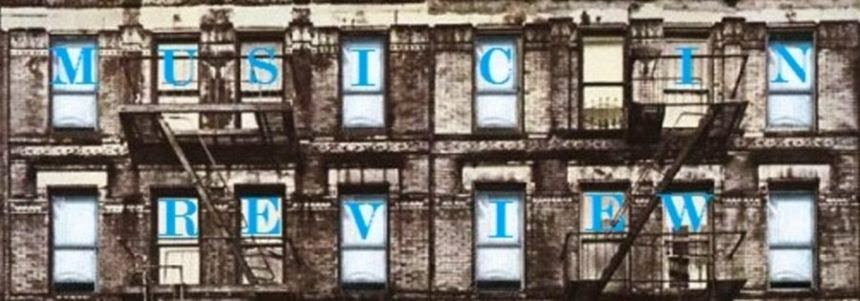I was curious just how few Trans-Siberian Orchestra songs were original after writing the above paragraph and I was surprised to find just how many songs were attributed to O’Neill, Oliva and Kinkel, but they take credit for songs like “Mephistopheles' Return” and "Christmas Eve/Sarajevo 12/24” which I know for a fact are collections of various classical pieces glued together. While going through each song and figuring out the percentage of Trans-Siberian Orchestra songs that are one hundred percent original is the sort of thing I am want to do, I will decline doing so at this time, I am not made of free time. Sorry Internet, I failed you. The point remains however, I am very confident that “Old City Bar” is one of the very few completely original songs created by the Trans-Siberian Orchestra.
I mean no real criticism when I point out that the vast majority of Trans-Siberian’s songs are quasi covers, after all just about the only thing I like about the holiday season is the music of the Trans-Siberian Orchestra. I would not be caught dead listening to Christmas music until “Christmas Eve and Other Stories” came out in 1996. This tiny bit of information however does help support what makes a song like “Old City Bar” special however.
The guitar is the instrument that speaks to my soul, and there is little I love more than a nice guitar melody, acoustic or electric. Like any simple charming acoustic song I always get it in my head that I can learn to play it myself, and “Old City Bar” is such a nice song it would be advantageous to know how to play it, but being layman I struggled terribly. This is not too surprising really, many of the acoustic songs I have sat down to learn have turned out to be much more intricate and complicated then they sound; which should really give us all a greater appreciation for the sheer talent of the professional guitar players out there who make it look so easy. If you really want to learn how to play “Old City” bar, this girl explains it pretty well I think: https://www.youtube.com/watch?v=XEwaX71VjM4
The real charm of “Old City Bar” is the quaint nature of the story and the uplifting message there within. A quick synopsis of the story is a women is stranded in the cold streets on Christmas Eve and a child recruits the help of a bar keep to help her get home safe and sound. The child suddenly vanishes after the good deed is done and the rumor emerges that the child was an angel. In a turn of great generosity the bar keep lets everyone drink for free, and the bar is like home to those to dwell inside. These two verses perfectly capture the spirit of the song;
“If you want to arrange it,
This world you can change it,
If we could somehow make this,
Christmas thing last.
By helping a neighbor,
Or even a stranger,
And to know who needs help,
You need only just ask.”
I think we have all heard a variety of explanations as to what constitutes the true meaning of Christmas. We technically have two primary cultural influences that dictate two completely different messages. The various Pagans of Europe would celebrate their Winter Solstices as the rebirth of the sun and the coming of new life as the deepest days of winter were passing. The Christians, who effectively stole the holiday from the Pagans, celebrate the rebirth of their savior Jesus Christ. The commonality is the theme of rebirth, that is not a coincidence and also not important to a discussion about “Old City Bar.” A lot of people have come to terms to with the idea that the Holiday season is about “peace on earth,” which is a nice try, but more pragmatic people are forced to recognize the truth that the holiday season has become more to do with commercialism than anything else, but perhaps the healthiest message we should believe in is the one O’Neill and company are encouraging for us to share, and that is charity and kindness.
I would be lying if I pretend to care about the “reason for the season” I do not even like Christmas, I’d rather be working. Can you imagine how much work I could get done around the office if no one else was there to sideline me with unpredictable problems? It would be so nice. However as much of a scrooge you may qualify me as, I really like “Old City Bar” and I really like the message it invokes. If you want to make a better future, go make it; be the difference you want to see in the world; help a stranger; pay it forward; and other clichés. Every day is the future. We are the future, all of us.
Until next year, keep on rocking in the free world.
- King of Braves





















.jpg)